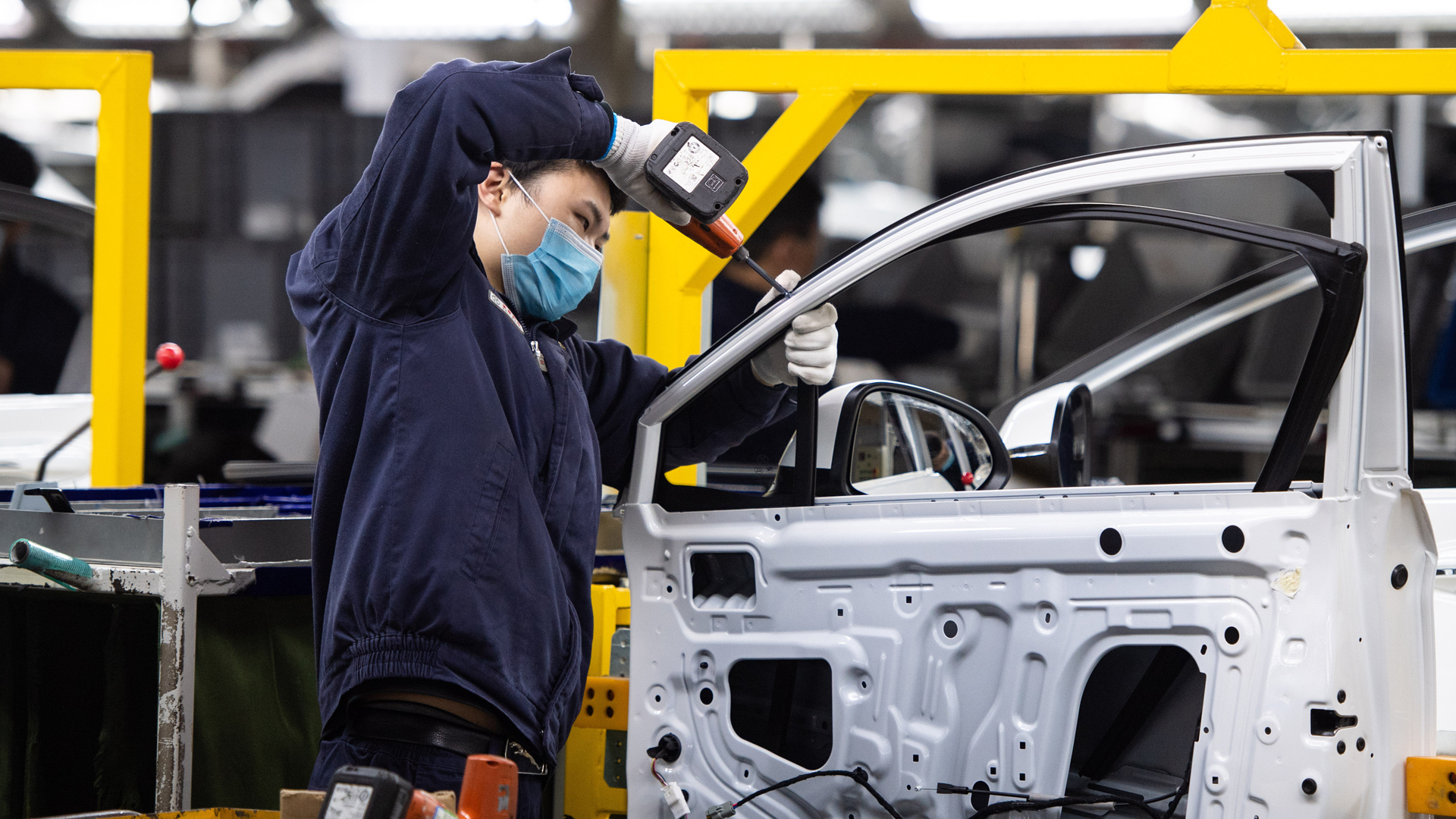

Good morning and welcome back to Speed Lines, The Drive’s morning roundup of what matters most in the world of transportation. Wash your hands, please.
China Begins Recovery
China isn’t just the originator of the coronavirus outbreak that has claimed nearly 4,000 lives and wreaked havoc on the global economy. It’s also the country that has faced the worst of the epidemic, with factories, car dealerships and entire cities becoming ghost towns as people avoid working and gathering in large groups.
But as of this week, we’re beginning to see some gradual signs of recovery in China. The country has a long way to go, but travel, factory work and shipping seem to be stirring again. Here’s Reuters, noting that we may not yet know if this trend is permanent:
The “China Economic Recovery Index” (CERI) compiled by WeBank, a digital bank initiated by China’s tech giant Tencent, based on aggregated mobility data, suggests that around 68% of business activities, including manufacturing and consumption, have resumed.
Eastern and southern Chinese cities, major manufacturing hubs for electronics, machineries and textiles, are seeing a faster recovery pace compared with its inland counterparts such as Henan and Hubei.
China represents 22% of seaborne imports and 33% of shipbuilding capacity in the world. Major ports in China were seeing ship congestion and cargo backlog as workers were unable to return to their posts amid the coronavirus travel curbs.
Clarkson Research also suggested more information is needed to understand if the uptick trend is sustainable.
“While the trend suggests activity is stabilizing, a second dip is possible once initial backlogs are cleared,” said Stephen Gordon, analysts at Clarksons Research, adding that operational challenges were also having an impact, including crew changes and acceptance of ships at ports.
[…] Transportation ministry data showed that more than 300 million people had gone back to work in the country after the Lunar New Year holiday.
Another story from Reuters speaks to the auto industry specifically, and how those factories—especially in Wuhan, the epicenter of the outbreak—face a great deal of uncertainty as they start to reopen:
The car industry is especially exposed as Wuhan – the epicenter of the outbreak – is known as one of China’s ‘Detroits’, accounting for nearly 10% of vehicles made in the country and home to hundreds of parts suppliers.
Non-essential factories in Wuhan and other cities in Hubei province remain on lockdown at least until Wednesday. When they reopen on March 11, or whenever authorities give the go-ahead, it is not clear if companies will have the raw materials or workers to get back to normal operations.
Automakers are concerned about their employees’ health and the uneven and unpredictable application of rules in different cities and regions that is making it hard for an industry that is used to uniformity to plan ahead.
Don’t take this as great economic news just yet. As those stories note, factories still aren’t running with 100 percent of their workforces and many of them lack necessary parts for production, as well as medical supplies. If a recovery is underway, we’re still in the earliest possible days of it.
And we don’t have much in the way of rosy news in America today, as coronavirus fears and a new crude oil price war sent stocks plunging in early trading.
At Least Elon Musk Isn’t Worried
One person who’s willing to openly call the coronavirus panic “dumb” is noted public health official Elon Musk, who made his feelings very clear on Twitter this weekend. Here’s why he thinks so:
It’s also worth noting that Tesla’s stock is down 20 percent from its massive surge earlier this year amid a larger selloff sparked by virus fears. And, more importantly, that the Centers for Disease Control and Prevention are not in agreement with Musk on this one. I think you should maybe get your health advice from somebody else.
GM Is Very, Very Optimistic About Its EV Plan
Expect a deeper dive into this on The Drive soon, but General Motors executives are making big promises over the aggressive new electric car plan. Here’s Automotive News:
GM intends to leap ahead of competitors that were quicker to get serious about electrification by flooding the market with profitable, long-range models. The automaker is pledging $20 billion toward electric and autonomous vehicle programs through 2025 and says its battery costs will soon fall below $100 per kilowatt-hour, the threshold widely seen as making EVs competitive with internal-combustion vehicles.
As a result, GM says its coming EVs will be profitable, something virtually no auto- maker has been able to achieve. The company projects its EV sales in North America and China combined will reach 1 million a year by the middle of the decade, and executives say they can still meet demand even if it significantly exceeds their forecasts. GM says its EV business could even match the scope of its lucrative full-size pickup and SUV lines.
“This isn’t 10 years away. It’s not five years away. It’s next year and the year after and the year after,” GM President Mark Reuss said. “I don’t think anybody has a gun that’s loaded like this.”
On Our Radar
Boosted lays off ‘significant portion’ of its employees (The Verge)
Dealer body key to success with EVs, GM says (Automotive News)
Is Your Data Being Collected? These Signs Will Tell You Where (Wired)
Read These To Seem Smart And Interesting
Are Frequent Flier Miles Killing the Planet? (NY Times)
Free breadsticks during a coronavirus outbreak (Popular Information)
The Great Coronavirus Panic of 2020 (Politico)
Jack Dorsey will remain Twitter’s CEO, following an attempt to oust him (Protocol)
Your Turn
Are you worried about COVID-19? If so, how, and if not, why not?